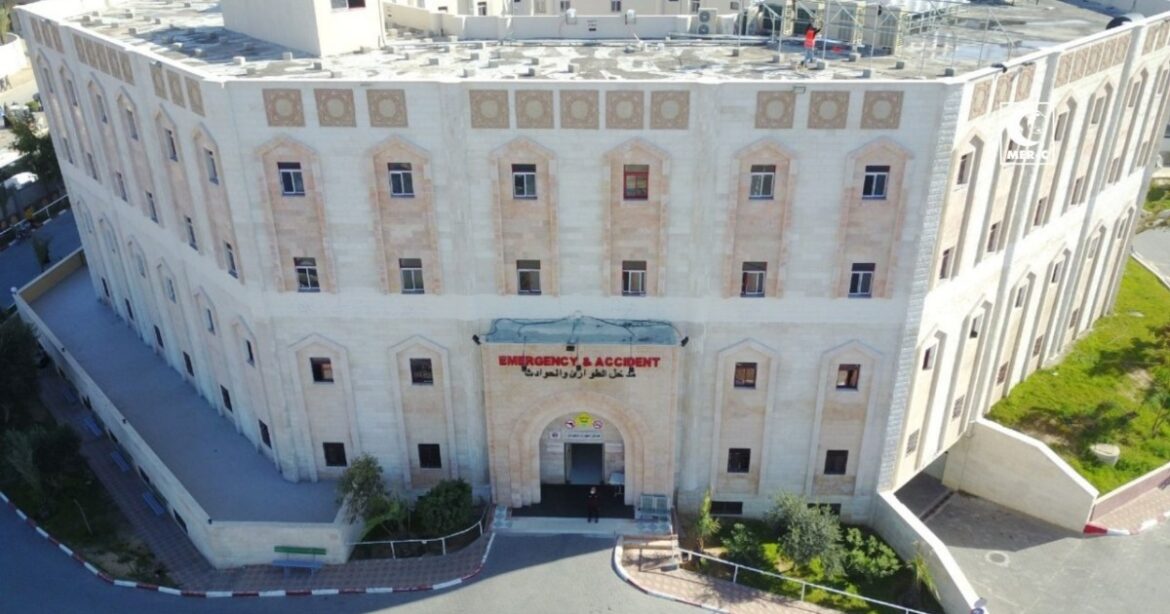Medan, Indonesia – An Indonesian-funded hospital in Gaza is struggling to treat a deluge of patients injured in Israeli bombings, amid dwindling drug supplies and power cuts that have forced doctors to operate in the dark, said a voluntary organization.
Fikri Rofiul Haq, a volunteer with the Indonesia-based Emergency Medical Relief Committee (MER-C), which organized donations to build the hospital in 2011, told Al Jazeera that the Indonesian hospital had been flooded with patients after weeks of incessant bombardment by Israeli forces. .
“In Indonesian hospital alone, 870 people died and 2,530 people were treated for injuries. Some 164 patients are still hospitalized,” Haq told Al Jazeera.
“About half of Gaza’s population has been evacuated to places people consider safer than their homes, such as schools and hospitals, including the Indonesian hospital. More than 1,500 residents have fled to the Indonesian hospital and are camping in empty rooms and hospital courtyards.
Last week, the hospital lost electricity due to a power outage caused by a lack of fuel, as Israel’s blockade of the enclave prevented the entry of essential supplies.
“We are trying to find fuel to power the Indonesian hospital after the power outage lasted more than an hour. Doctors had no choice but to perform operations and treat patients without any light,” Haq said.
“The Indonesian hospital really needs medical assistance and the hospital staff are exhausted because they are forced to work 24 hours a day.”
Haq said getting aid to the hospital had been a challenge, but MER-C had secured donations from Indonesians and other humanitarian organizations in Gaza and volunteers had been able to deliver supplies to the hospital. hospital on October 19 and 24.
“We have been able to obtain medicines and other medical equipment, but there are still a lot of medicines that we do not have in stock because they have run out,” he said.
Humanitarian mission
According to the Indonesian Foreign Ministry, 45 Indonesians are currently based in Palestine – 10 in Gaza and 35 in the occupied West Bank.
There are also some 230 Indonesians based in Israel, many of whom are there for religious tourism.
The Indonesian hospital is located in Beit Lahia, a town of around 90,000 people in northern Gaza, and covers some 16,000 square meters (19,136 square yards) of land donated by the Gaza government in 2011.
The construction of the hospital cost almost $8 million and was funded by donations from Indonesian citizens in collaboration with organizations such as the Indonesian Red Cross Society and the Muhammadiyah Society, one of the largest Muslim organizations in Indonesia.
MER-C – which describes its mission as helping “the most vulnerable people”, regardless of their origin, religion, nationality, ethnicity, social class or criminal status – was founded by a group of University of Indonesia students who performed medical procedures in Maluku in eastern Indonesia in 1999, during sectarian conflict between Christian and Muslim communities.
Since its establishment in 1999, MER-C has conducted humanitarian missions in conflict-affected countries, including Afghanistan, Iraq, Iran, Palestine, Lebanon, Sudan, the Philippines and Thailand .
The organization has provided medical assistance to some controversial patients, including Abu Bakar Bashir, leader of the Al-Qaeda-linked Jemaah Islamiyah group, and a number of planners of the Bali attacks before their execution in 2008.
The Indonesian hospital also received more than $63,000 in donations from the Islamic Defenders Front, banned in Indonesia in 2020, to establish a blood bank.
Jusuf Kalla, then Indonesia’s vice president, officially opened the hospital, which has around 100 beds, four operating rooms and an intensive care unit, in 2016.
Communications were cut across Gaza on Friday, preventing humanitarian organizations, including MER-C, from contacting their staff on the ground.
Rima Manzanaris, operational director of MER-C based in Indonesia, said the escalation of military bombardment on Gaza and patchy communications were extremely worrying, particularly following reports of heavy shelling near the hospital in recent years. last days.
“We were unable to contact our three Indonesian volunteers in Gaza from the afternoon of October 27 because all phone networks and WhatsApp were down,” she told Al Jazeera.
Manzanaris said the MER-C is currently preparing to send a team to Egypt to collect aid for distribution to the hospital.
“Since last week, the MER-C team in Gaza has been distributing aid provided by Indonesian nationals by seeking supplies from the Gaza Strip, including medicines, paramedical clothing, ready-to-eat food, equipment winter and fuel for the center’s generators. Indonesian hospital,” she said.
Communications in Gaza were restored on Sunday after nearly 36 hours of near-total blackout.
Haq said Israeli bombing had already destroyed parts of the hospital’s roof, causing the ceilings of several rooms to collapse.
“Two days ago, Israeli forces carried out extremely intense shelling around the Indonesian hospital, which started in the afternoon and did not stop throughout the night. We just heard explosions continuously,” Haq said. “The sounds of the explosions were deafening and some Israeli rockets landed in the vicinity of the hospital. »
“The bombs shook the whole hospital and we had to try to save ourselves by sheltering in the basement,” he added.
Haq said he had received reports that trucks carrying aid were on their way from Egypt but were being delayed by queues to enter Gaza.
“We hope that a ceasefire will be declared soon,” he said. “Winter is coming and, if this war continues, the refugees in the Gaza Strip will find themselves in a very precarious situation because they will not have enough mattresses, blankets and jackets. »



